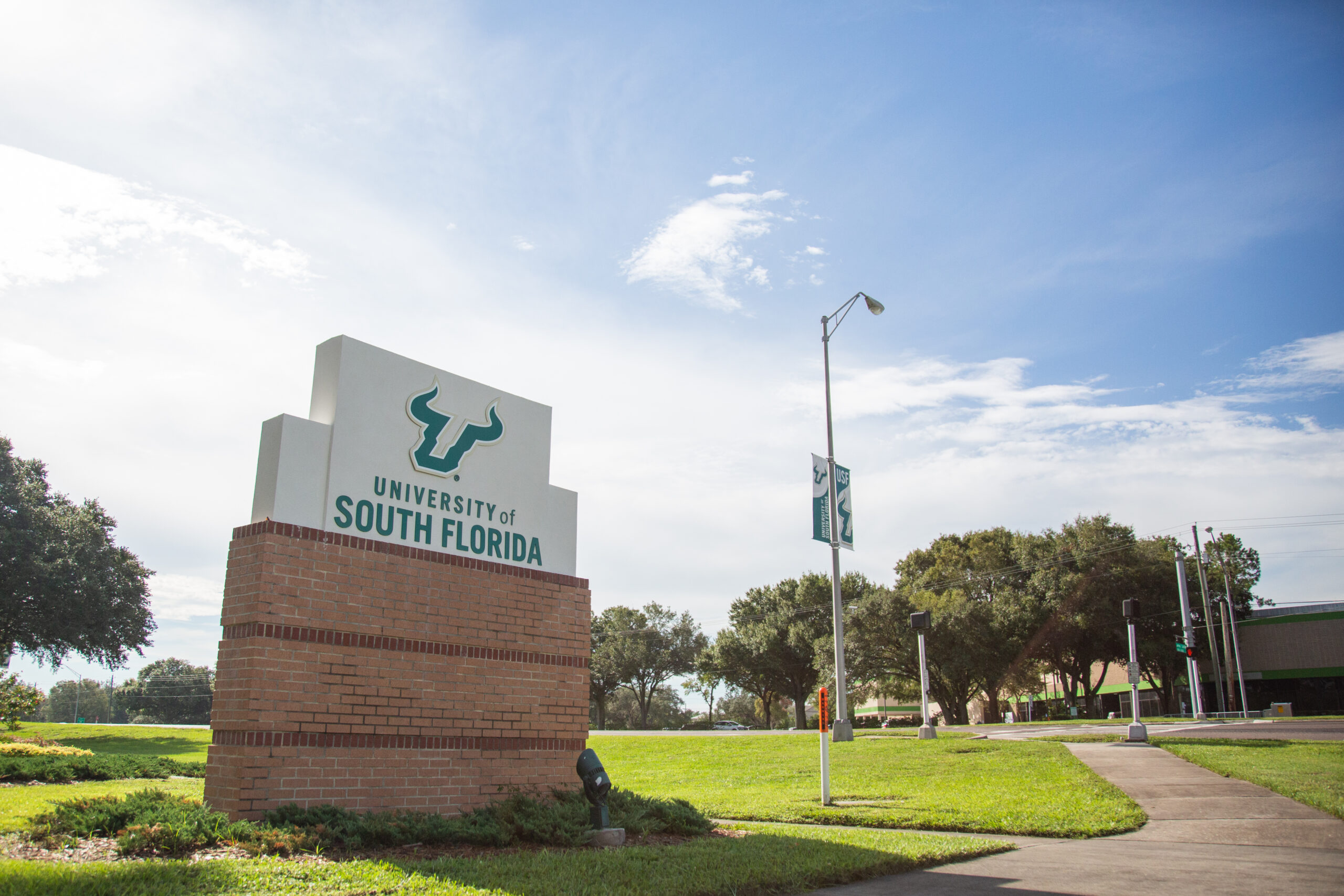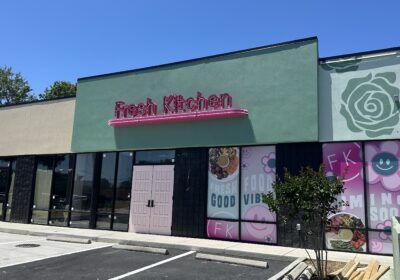USF’s Asian student community reacts to recent attacks, calls for additional administrative support

Two weeks after USF sent its students home for the remainder of the spring 2020 semester, Tee Chulikavit went out to lunch with his brother at a restaurant on Fowler Avenue, but never got a chance to eat. Shortly after ordering, the two were asked to leave by the restaurant’s manager for making other customers “uncomfortable.”
“[We said], ‘We’re just here. We’re still in our masks. What’s there to be uncomfortable about?’” said Chulikavit. “And [the manager said], ‘[Customers have] expressed concern that you guys might have COVID.’
“My brother got really mad, real quick. He [said], ‘What concerns? What kind of evidence do they have?’ And [the manager said], ‘I don’t think you would want to hear it.’ [So I said], ‘All right, it’s whatever.’”
Since then, he has been “uneasy” about his safety and going out in public, especially in the last few months. He said he’s been avoiding walking by himself due to the fear of being targeted.
Chulikavit is the vice president of external affairs for both the Multicultural Greek Council (MGC) and Asian Students in America (ASIA) as well as a brother in the Asian-interest fraternity Pi Delta Psi. Although he is ethnically Thai, he said when the pandemic began and was coined as “the China virus” by former President Donald Trump, he immediately knew it would be a difficult year dealing with racism.
“A month or two ago … an elder from Thailand was tackled, and it hit me personally because I am Thai. I’m Thai American, but they say ‘China China,’ and then they go on the streets and if he looks Asian, then it’s like ‘Hey, he started COVID, they’re the reason COVID is here,’ said Chulikavit. “So, it’s been really daunting to me.”
Following the string of attacks at three spas in Atlanta on March 16, killing eight people, including Paul Andre Michels, Delaina Ashley Yaun, Soon Chung Park, Daoyou Feng, Hyun Jung Grant, Suncha Kim, Xiaojie Tan, and Yong Yue, six of whom were Asian, attention has been called to the racism the Asian and Pacific Islander community has faced due to the pandemic and its affiliations with China.
In response to the recent events, a coalition of 19 Asian student organizations, including Pi Delta Psi, Alpha Kappa Delta Phi, an Asian-interest sorority, the Society of Asian Scientists and Engineers, ASIA and the Vietnamese Student Association, released a statement Saturday which called for USF administration to provide more “safe spaces and resources” to USF’s Asian community.
In the letter, the authors also requested a meeting with university administration to “discuss resources and opportunities that can be offered to the Asian community.”
“We, the student organization leaders of USF’s Asian community, condemn all acts of xenophobia and racism against our community and call on our allies to stand in solidarity with us. It is imperative that we stand together to demand better,” said the letter.
USF President Steven Currall released a statement March 8 condemning anti-Asian racist violence and shared resources for USF’s Asian community, including on-campus counseling services and links to anonymously report hate crimes. After the events in Atlanta, Currall’s statement was reposted on the university’s social media accounts.
For Chulikavit, the university should be doing more than that.
“USF could definitely raise a lot more awareness about the topic,” said Chulikavit. “A statement is kind of just for the press and I would really want them to do something for the students, and not for themselves.”
Students like CCLC President Grace Johnston, Chulikavit and Robyn Lyn Medicielo feel that USF administration can do more to help the community by promoting informational events and workshops being hosted by the other Asian student organizations.
“I feel like if they did publicize or promote clubs and what we’re doing and the workshops that we’re having, it could also be another avenue for people to learn more about this, and also another safe space for other people,” said Johnston.
The Office of Diversity, Inclusion and Equal Opportunity announced Monday that it will host a town hall meeting Thursday from 2-4 p.m. to discuss the recent events affecting the Asian, Pacific Islander and Desi communities.
Son Cao, president of the MGC, brother of Pi Delta Psi and member of the Vietnamese Student Association emphasized how the university should take a step further when listening to the voices of its Asian students by reaching out to them directly.
“I think [Currall] needs to actually speak to Asian student leaders or just the Asian student body in general. Because … [in] these blanket statements, [it is] nice you condemn Asian racism, but what’s next? OK, you provided a link to resources, what’s next? You’re doing the bare minimum,” said Cao. “I feel like that’s what the school administration is doing.”
Although violence toward toward the Asian community has been prevalent in national news recently, it has been long and ongoing since the pandemic began last year.
“Asian racism has only been this national conversation because of the mass shooting on Tuesday, but as we know this has been happening to us for the last year,” said Cao.
“Over the past few weeks, there’s been a lot of elderly that have been killed and assaulted, and other people in our communities, but somehow it took a whole mass shooting for … our Asian voice to finally be heard.”
Shortly after the start of the pandemic, an Asian woman was attacked outside of her home in Brooklyn with an unknown substance that left chemical burns on her face, according to the New York Police Department. More recently, a 76-year-old Asian woman was attacked Wednesday in San Francisco and was taken to the hospital to treat her eye, which was bleeding.
Attacks like this, although miles across the country, still trickle fear into the Asian community at USF and in Tampa.
Medicielo, a junior majoring in business analytics, is Filipino American. She said her family has also been weary of her leaving the house, especially following the recent attacks in Atlanta.
Last week, she planned to head out of the house to study with friends and wanted to bring along her tote bag representing the Chinese Cultural Language Club (CCLC), of which she is the vice president.
When she was about to leave, however, her mother hesitated.
“My mom felt that it wouldn’t be safe for me to wear [the tote bag] out in public because she feels like I could be targeted since I’m Asian, and also it says I am a part of the Chinese Cultural Language Club,” said Medicielo. “She feels that I could be putting myself in danger if I was wearing something that was saying, ‘I’m Asian,’ stuff like that.”
The moment Cao heard about the attacks in Atlanta, all he could think about was his own family, who live two hours away in Daytona Beach and work in salons there.
“My first thought was thinking about my own mother and sister, how they work in the nail salons, as a lot of Vietnamese parents and Asian women do. I didn’t know the ethnicities of the people who were killed or not, but just hearing six Asian women getting shot, that was my first immediate thought,” said Cao.
“Just thinking that something happened to my mother and sister, and based on like a hate crime-type thing, and I could not do anything about it, it made me really sad. It made me feel really small in the world, the fact that I couldn’t do something about it if something happened.”
While violent racism toward the Asian community has been on the rise in the last year, it is not new. Asian citizens have been a target of racism in the U.S. from as early as the 1800s, according to associate professor and Undergraduate Program Director of USF’s Department of History K. Stephen Prince.
“Most of the time that Asian immigrants and Asian Americans have been residents in the United States, violence was actually quite common. It’s simply just in the last few decades, when Asian Americans have been presented as the “model minority” and the most integrated and assimilated immigrant group or ethnic group in the United States, [it has] become a little harder to see that history of violence that has been there all along,” said Prince.
“So people are seeming very surprised at the moment, but I think in fact, if you take the longer view, this unfortunately may be more of a return to the norm than not.”
Cao said speaking up can be a step out of the norm for some members of the Asian community, with a significant aspect of Asian culture being “very passive.”
“A lot of us don’t want to speak up because we think that we can’t really do anything about it. That’s been ingrained in us since we were like little kids … we were told never to argue with our parents or argue with other adults or other people. When things happen, [they are just] supposed to happen or whatever,” said Cao.
“I would like to change that mindset within our own Asian community. I wish that we would use our voices, and physically go out there and do some actual change instead of just putting out blanket statements.”
While Cao hopes to be a strong voice for the Asian community moving forward, his concerns living in a world with perpetuated racist violence is still a heavy weight for him to carry.
“This whole pandemic affects every single student,” said Cao. “But now, on top of being Asian American in America, not only do I not feel safe about the pandemic, but I also don’t feel safe in my own skin.”






